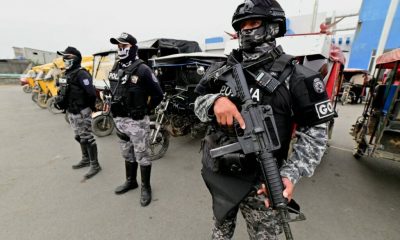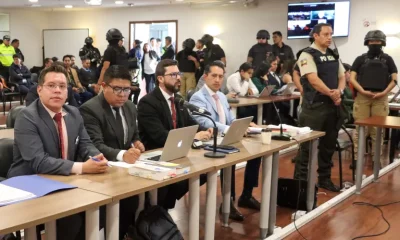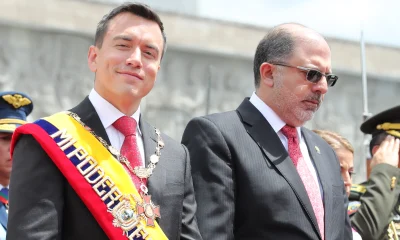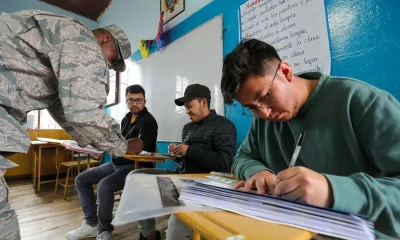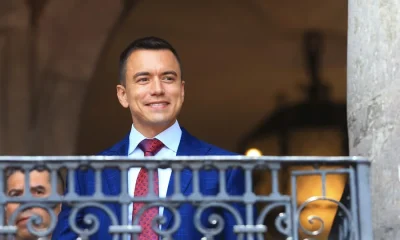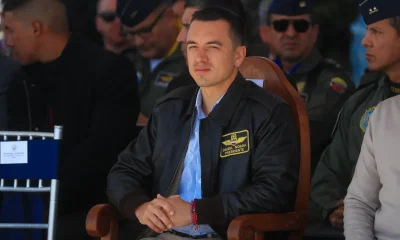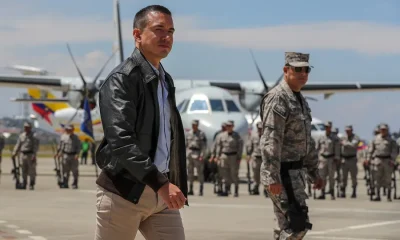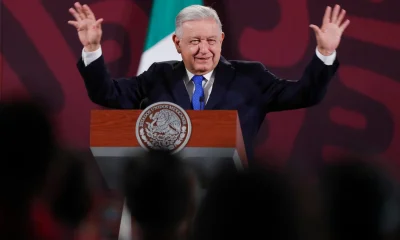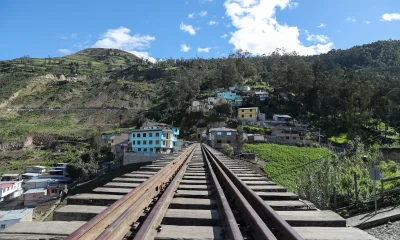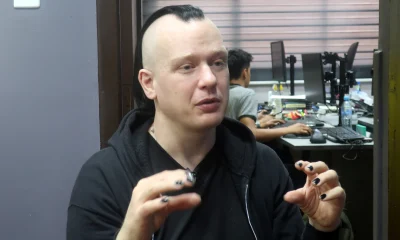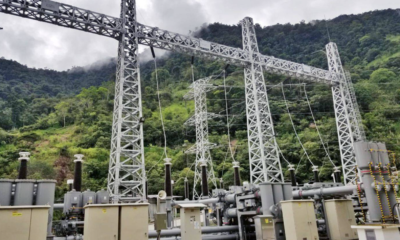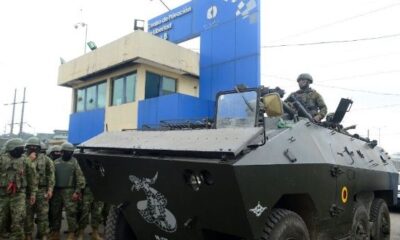International
Ecuador’s Citizen Revolution considers cross-death illegal
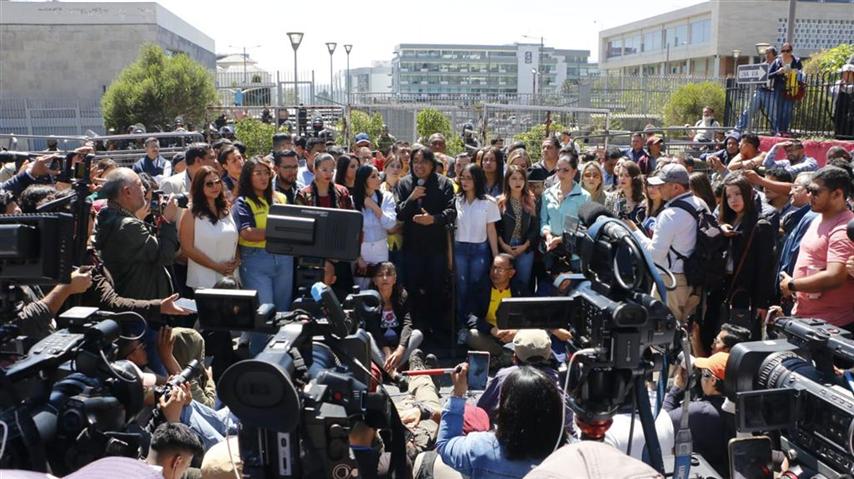
May 17 |
The Citizen Revolution (RC) movement today considered the cross death decree issued by Ecuador’s president, Guillermo Lasso, a victory in the face of the impeachment process, although it qualified the measure as illegal.
The president’s decision represents the victory of the CR bench against the impeachment process that would lead to his dismissal, said former first vice president of the National Assembly Marcela Holguin in a press conference on Wednesday.
According to what the representative of the force related to former governor Rafael Correa declared, Lasso prevented the vote on the “trial of history” with a strategy taken at the last minute by a “hopeless president who clings to power”.
The cross-death is a constitutional mechanism in Ecuador that allows the chief executive to dissolve the unicameral legislative body and advance general elections.
We are not afraid of the popular pronouncement in the ballot boxes and we are not going to take any action because we believe that the people in a crisis situation is the one who must decide, affirmed the parliamentarian Virgilio Hernandez.
However, the CR affirmed that the measure at this moment is illegal because it is not justified with the causes foreseen in the Constitution, such as the existence of an internal commotion or serious political crisis.
If the president calls for a crusade death, we will not shy away from it and we will put our positions as always at the service of the Ecuadorian people, Holguin underlined.
So far, the Constitutional Court has not ruled on the legality of the decree, which allows Lasso to continue in power for at least six months and to govern during that time through executive measures.
The National Electoral Council, for its part, called for a press conference this afternoon to refer to the early elections that would allow Ecuador to have a new president in November.
International
Venezuela Debates Broad Amnesty Law Covering 27 Years of Chavismo

Venezuela’s Parliament began debating on Thursday a sweeping amnesty bill that would cover the 27 years of Chavismo in power, while explicitly excluding serious human rights violations and crimes against humanity.
The proposed legislation, titled the “Amnesty Law for Democratic Coexistence,” was introduced by interim President Delcy Rodríguez, who assumed power following the capture of Nicolás Maduro during a U.S. military operation.
The legislative session was convened for Thursday afternoon, with lawmakers holding an initial discussion focused on the general principles of the bill. This phase precedes a consultation process with civil society, after which the proposal will move to a final debate examining each article individually.
According to a draft of the bill obtained by AFP, the amnesty would apply to individuals accused of crimes such as “treason,” “terrorism,” and “incitement to hatred,” charges that were frequently brought against political prisoners over the past decades. The scope also includes offenses ranging from acts of rebellion to punishments imposed for social media posts or messages sent through private messaging services.
The bill’s explanatory text emphasizes reconciliation, stating that it seeks to move away from “vengeance, retaliation, and hatred” in favor of “opening a path toward reconciliation.”
However, the proposal explicitly excludes from its benefits crimes such as “serious human rights violations, crimes against humanity, war crimes, intentional homicide, corruption, and drug trafficking.”
These exclusions, the text notes, are based on strict compliance with the Venezuelan Constitution, which already prohibits granting amnesties or pardons for such offenses.
International
Díaz-Canel Calls for Talks With Washington Without Pressure as U.S. Tightens Oil Sanctions
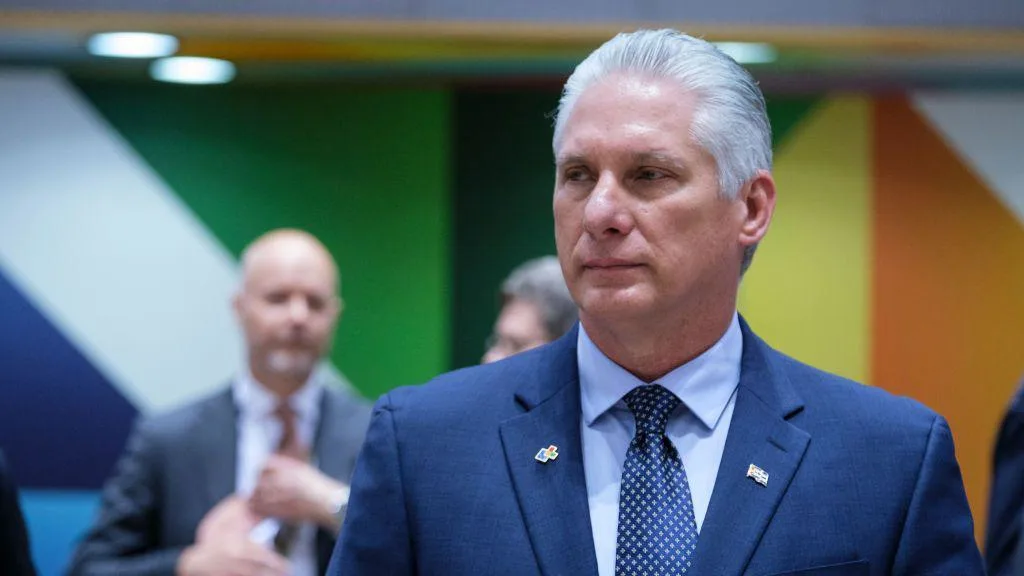
Cuban President Miguel Díaz-Canel said on Thursday that his government is willing to engage in dialogue with the United States, provided that talks take place on equal terms and without pressure.
“Cuba is prepared to hold a dialogue with the United States on any issue that either side wishes to discuss,” Díaz-Canel said during a press conference broadcast nationwide on radio and television.
He stressed, however, that such dialogue would only be possible “without pressure, without preconditions, on the basis of equality, and with full respect for our sovereignty, independence, and self-determination.” The Cuban leader added that discussions should avoid issues that could be interpreted as interference in the country’s internal affairs.
Díaz-Canel’s remarks come at a time when Cuba is facing growing pressure from the administration of U.S. President Donald Trump, which has implemented a series of measures that have restricted the island’s access to fuel needed to generate electricity.
Washington has sought to prevent Cuba from receiving oil from Venezuela, its main ally for more than two decades, and has stepped up pressure to reduce crude shipments from Mexico. In addition, Trump signed an executive order in late January allowing the United States to impose tariffs on countries that sell oil to Cuba.
In that order, the U.S. president declared that Cuba represents an “unusual and extraordinary threat” to U.S. national security and foreign policy, accusing the island of aligning itself with hostile countries and actors.
International
HRW Warns Trump’s Influence Has Weakened Human Rights in Latin America
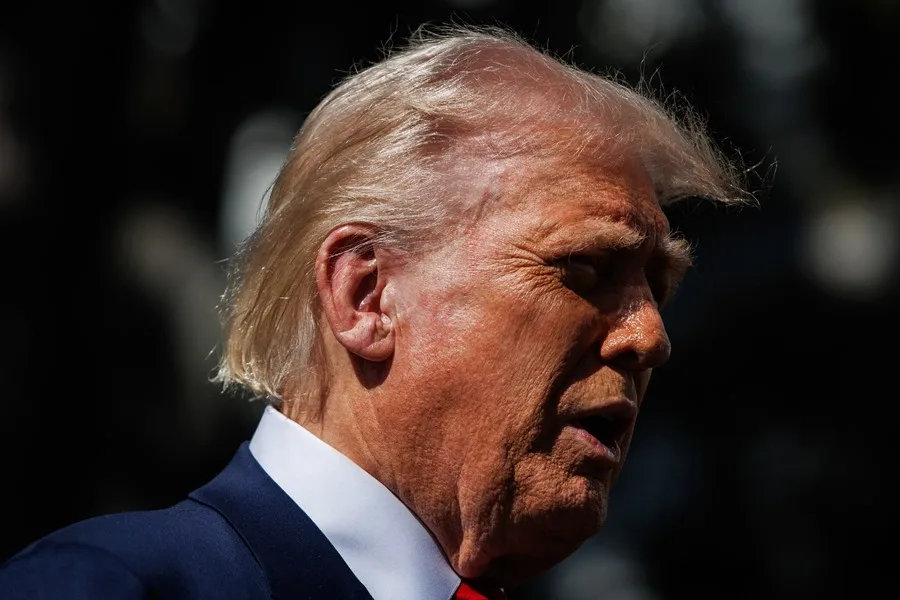
Human Rights Watch (HRW) warned that the political influence and rhetoric of U.S. President Donald Trump have contributed to a deterioration of human rights conditions across Latin America and the Caribbean. In its World Report 2026, the organization stated that several governments in the region have committed abuses against migrants and citizens, or have used U.S. policies as justification to impose harsher repressive measures.
During the first year of Trump’s new term, HRW observed that multiple countries violated the rights of foreign nationals under direct pressure from Washington. Other governments deepened security strategies based on militarization, mass detentions and excessive use of force, according to the report.
“The impact of the Trump administration has undoubtedly been negative in Latin America and the Caribbean,” said Juanita Goebertus, HRW’s Americas director. However, she emphasized that “governments in the region remain responsible for defending democracy and fundamental rights, regardless of who is in power in Washington.”
HRW also reported that the United States significantly reduced cooperation funding for human rights organizations and independent media. At the same time, countries such as El Salvador, Peru and Ecuador passed laws allowing the arbitrary closure of civil society organizations and media outlets, weakening democratic systems and institutional checks and balances.
The organization further criticized what it described as a “double standard” in U.S. foreign policy, which condemns human rights violations in Venezuela, Cuba and Nicaragua while overlooking serious abuses committed by allies such as El Salvador, Peru and Ecuador. The report also included criticism of the U.S. military attack against Venezuela in early 2026, warning that it could strengthen Nicolás Maduro’s regime and respond primarily to U.S. political and commercial interests.
-

 International2 days ago
International2 days agoEpstein Denies Being ‘the Devil’ in Newly Released Video Interview
-

 International2 days ago
International2 days agoSpain Seeks to Ban Social Media Access for Children Under 16
-

 International2 days ago
International2 days agoPetro Resumes Extraditions, Sends Top Criminal to U.S. Before White House Talks
-

 International2 days ago
International2 days agoMexico to Send Humanitarian Aid to Cuba Amid U.S. Threats Over Oil Shipments
-

 International2 days ago
International2 days agoHypothermia Linked to Most Deaths During New York’s Recent Cold Spell
-

 International2 days ago
International2 days agoMexico Arrests Suspect in Shooting of Sinaloa Lawmakers
-

 International1 day ago
International1 day agoDelcy Rodríguez Takes Control of Chavismo as Venezuela Enters a U.S.-Supervised Transition
-

 Central America4 days ago
Central America4 days agoCosta Rica Goes to the Polls as Voters Choose Continuity or Change
-

 International1 day ago
International1 day agoHRW Warns Trump’s Influence Has Weakened Human Rights in Latin America
-

 Central America2 days ago
Central America2 days agoLaura Fernández Says She Will ‘Never’ Allow Authoritarianism in Costa Rica
-

 International2 days ago
International2 days agoNFL Investigating Emails Linking Giants Executive to Jeffrey Epstein
-

 International40 minutes ago
International40 minutes agoDíaz-Canel Calls for Talks With Washington Without Pressure as U.S. Tightens Oil Sanctions
-

 International21 minutes ago
International21 minutes agoVenezuela Debates Broad Amnesty Law Covering 27 Years of Chavismo
-

 Central America34 minutes ago
Central America34 minutes agoPanama Will Not Be Threatened, President Says Amid Rising Tensions With China
-

 Central America36 minutes ago
Central America36 minutes agoBukele’s Approval Rating Climbs to 91.9% in El Salvador, Survey Shows



























